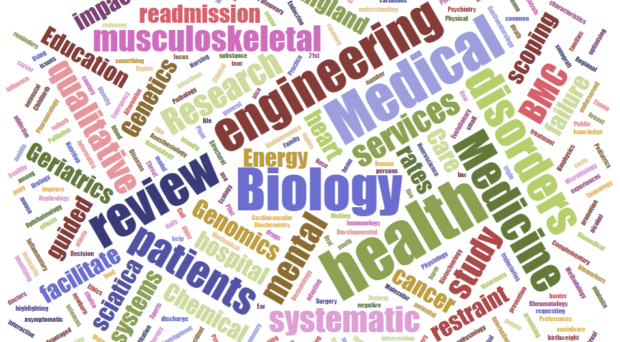
BMC Public Health – The NHS visitor and migrant cost recovery programme – a threat to health?
In April 2014 the UK government launched the ‘NHS Visitor and Migrant Cost Recovery Programme Implementation Plan’ which set out a series of policy changes to recoup costs from ‘chargeable’ (largely non-UK born) patients. In England alone roughly 75% of all diagnoses of Tuberculosis (TB) will be made in people born abroad. Because of this, the authors of this manuscript set out to assess the impact of the Cost Recovery Programme (CRP) on the quality of healthcare received by those not eligible for free NHS healthcare. Utilizing a dataset of 2237 diagnosed TB cases the authors found that median time-to-treatment after the introduction of the CRP increased by 20 days from 69 to 89 days for non-UK patients. They also found a significant change in the number of years migrant patients had been living in the UK before diagnosis. Rising from 10 years pre-CRP to 14.8 years post CRP. With delays in the diagnosis of TB increasing morbidity and mortality it is imperative that diagnosis is made as early as possible. With direct significant relationships between the introduction of the CRP and an increase in time-to-treatment the authors argue that restricting healthcare access for non-UK populations undermines national efforts to eliminate TB and conclude that governments have a “moral and legal obligation” to uphold the right to the highest attainable standard of health for all people, no matter their immigration status.
BMC Medical Research Methodology – Methodological challenges of analysing COVID-19 data during the pandemic
On March 11, 2020, the World Health Organization (WHO) declared that COVID-19 should be characterized as a pandemic. Since then we have witnessed the devastating and unpredictable spread of COVID-19 globally resulting in unprecedented lockdowns on a global scale. Aside from the increased burden on healthcare systems and the devastating humanitarian loss, researchers are now facing significant challenges in appropriately conducting statistical analyses of COVID-19 data to meet the WHO goal of evaluating “as fast as possible the effect of adjunctive and supportive therapies”. With appropriate statistical models playing a major role in “fighting panic with information” to reduce or eliminate the risk of bias across clinical and epidemiological studies the Guest Editors of this collection describe the most striking challenges experienced by statisticians and data analysts alike.
BMC Pregnancy and Childbirth – Effectiveness of telemedicine for pregnant women with gestational diabetes mellitus: an updated meta-analysis of 32 randomized controlled trials with trial sequential analysis
Gestational diabetes mellitus (GDM) is a continuing global health problem and can lead to serious maternal and neonatal/foetal complications. More recently the introduction of information and communication technology in healthcare has resulted in new technical support for the treatment of GDM. In this study the authors conduct a meta-analysis investigating the effectiveness of telemedicine (health services and medical activities provided by healthcare professionals through remote communication technologies) for the management of women with GDM. Identifying a total of 32 Randomized control trials and a total of 5108 patients the authors found that the use of telemedicine had significant improvements in GDM measures as compared to the standard care group. They also identified that the use of telemedicine lowered indices of cesarean section, neonatal hypoglycemia, preeclampsia, macrosomia, preterm birth and neonatal asphyxia, amongst others. The authors conclude that use of communication technology and telemedicine had significant positive effects on the control of GDM and also significantly reduce the risk of maternal and neonatal/fetal complications.
BMC Developmental Biology – A practical staging atlas to study embryonic development of Octopus vulgaris under controlled laboratory conditions

Octopus vulgaris is one of the most iconic species of neurobiology research. This is mainly attributed to its reputation as one of the most intelligent studied invertebrates, possessing both long and short term memory capability and a striking ability to perform complex cognitive tasks. However, given the high level of parental care required for successful spawning of offspring, laboratory research and experimental populations have been notoriously difficult to maintain. In this study the authors present a novel option for a parameter-controlled artificial seawater standalone egg incubation system that has the ability to replace the significant level of maternal care required, allowing the successful embryonic development of small-egged octopus species under laboratory conditions.
BMC Sports Science, Medicine and Rehabilitation – Dose-response of resistance training for neck-and shoulder pain relief: a workplace intervention study
With more than half of all adults reporting having experienced neck and shoulder pain it has become the second most common musculoskeletal disorder. Unsurprisingly it is most common amongst office workers who perform low intensity, but continuous movements as part of their role. Previous research has identified a relationship between resistance training and pain relief, but none have come to a consensus on the best resistance training frequency. Thus, the authors here set out to test which dose of resistance training achieved the greatest reduction in pain. Using a cohort of 27 individuals the authors imposed two interventional routines. One cohort completed one 10 minute session daily, 5 days per week and the other completed two 10 minutes sessions daily, 5 days per week. The authors found no difference between the two interventions, finding instead that any bout of high intensity resistance training significantly reduced levels of workplace related pain and improved the quality of life of office workers.
Comments